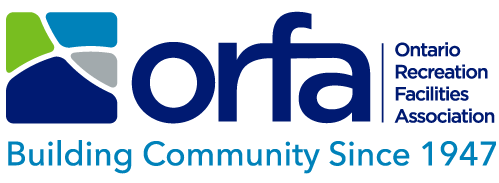- ORFA Home
- COVID-19 Updates
- March 9, 2020
March 9, 2020
Coronavirus (COVID-2019)Your health and safety are very important to us. The Ontario Recreation Facilities Association Inc. (ORFA) is closely monitoring the spread of the COVID-19 virus. At this point, the Government of Canada and other agencies have no warnings against traveling to Toronto, Guelph, or any other destination in Canada. All ORFA educational events, including regional training, the Annual Professional Development Program (April 26 – May 1, 2020, Guelph) and the Recreation Facilities Emergency Management Forum (June 7 – 9, 2020, Toronto) are all still scheduled to take place. Our training partner, University of Guelph, and our host hotels have issued the following updates:Any member that is registered for an ORFA event from March 9, 2020 to May 31, 2020 and who has presumptive or confirmed COVID-19, or has self isolated themselves, will receive a training credit valid for one year. Anyone that attends an ORFA event with a persistent cough and fever will be asked to withdraw themselves and will also be eligible for the same training credit. Recreation facilities are high traffic areas visited by potentially thousands of users throughout each operational day. With any potential public health risk, facility management must take appropriate steps to keep both workers and the public safe. Awareness is always key to controlling these types of situations. As the media continues to update on the increasing impact from novel coronavirus (2019-nCoV), ORFA members are encouraged to be aware of shifting patterns in the virus growth and adjust operations accordingly as maybe required. Understanding the importance of keeping facilities and, the related infrastructure clean and sanitized is always important but heightened during these types of events. 1. What is novel coronavirus (2019-nCoV)? Coronaviruses are a large family of viruses and can cause diseases ranging from the common cold to more severe diseases such as SARS. On December 31, 2019, Chinese health authorities identified a new coronavirus through a series of reported cases of pneumonia in Wuhan, China. A novel coronavirus (2019-nCoV) is a new strain that has not been previously identified in humans. 2. What should ORFA Members be doing to keep employees and the public safe? All levels of government are monitoring the global coronavirus situation and have taken measures to ensure public health readiness at the federal, provincial and municipal levels. Regionally, all health stakeholders are working together to monitor the situation and taking all the necessary steps to be fully prepared for any appropriate responses, if required. 3. What steps need to be taken if any Member is travelling abroad and there is concern about exposure to coronavirus? Public Health is encouraging anyone who is planning travel to visit the Federal government’s website and follow all requirements upon returning home. Currently, there are no quarantine or self-isolation requirements for those returning without symptoms. Travelers without symptoms should feel free to return to their regular scheduled activities without restrictions. Should travelers feel unwell in the first 14 days from their date of departure from an affected area they should remain at home, put on a mask and call local Public Health for direction. 4. What can I do to help prevent the spread of viruses in my workplace? As discussed in the ORFA Building Maintenance and Operations course there are many simple things that we can all do to be diligent in our workplaces to prevent the spread of all types of respiratory illnesses, including the flu. Public Health advises:
5. What can Members do if worried about getting coronavirus? The risk of contracting coronavirus in Canada is low. Airports are screening returning travelers and plans are in place to identify cases and prevent secondary cases. If you are exhibiting similar symptoms, call your health care provider. This is our typical flu season and it is not uncommon to experience respiratory illness this time of year 6. Where can Members get more information about the coronavirus, symptoms, etc.? Please visit the Ministry of Health website. Public Health advises avoiding chat groups or questionable sources of information as these are not reliable. Other good sources of information include: Resources: | In this section |
